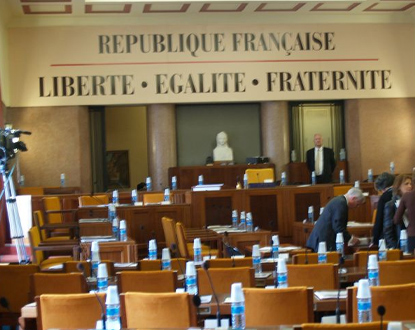At the last city council meeting, a high-decibel debate took place during the deliberation regarding the purchase of two artworks, as we reported in our commentary article the day after the session.
Since the controversy does not seem to be fading, and the electoral campaign left some marks with nerves still on edge, we return to express our opinion on the matter.
In fact, there are two subjects at hand.
Indeed, even though there is a single deliberation, we cannot equate the acquisition for the Mamac of a work by an internationally renowned artist like Juliao Sarmiento, validated by the expert evaluations required by law, with that of Sabine Geraudie, a local artist, who created a 3-meter sculpture inspired by the famous blue chairs, which is set to be placed on the Promenade des Anglais.
Sure, for a Promenade des Anglais that we would want to list as a world heritage site, one might have imagined something better than the work of a local artist!
For this artwork, beyond its market value, the criticism stems from the fact that the artist was a running mate (not elected) and a member of the support committee for candidate Estrosi, who is now the mayor of Nice: Hence the accusations from the opposition.
In fact, the timing and context (the first city council meeting after the formation of the municipal assembly) of the deliberation are not the most conducive to believing it to be a purely artistic choice. Moreover, the Ethics Committee will be able to rule on this matter.
But to stay grounded, it must also be said that if all the individuals and personalities who officially (or unofficially) supported Christian Estrosi during his electoral campaign were to be singled out for the sake of impartiality, the life of the city would become paralyzed, given the influence exerted by him and his personal and institutional power of persuasion.
Thus, the concern for the future precisely comes from the response of the mayor of Nice, who reassured the opposition of his desire not to show sectarianism!
Unfortunately, history shows that the excesses of power do not come from the one who exercises it but more often from his entourage and even more so from his… backroom!


